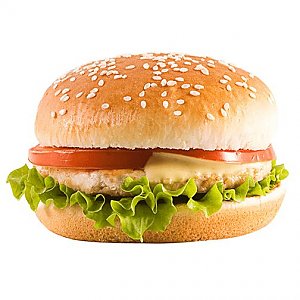- Antibiotics Tests in Milk
- Inhibitory detection test
- Laboratory equipment
- Centrifuges
- Indicator strips
- Autoclaves
- Scales
- Thermometers
- Packing
- PureTrust ATP monitoring
- ATP monitoring PIONEERPRODUKT CleanTrust
- MICROFAST® substrates
- Nutrient media
- Ice cream sticks
- Consumables
- Detergents and disinfectants
- Treatment agent
- Milk filters
- Wipes
- Gloves
- Sampling
Poland will demand from the EU to impose sanctions on Russian food
He explained that this measure should be taken immediately as part of food security, given the recent problems with grain and other agricultural products from Ukraine. Recall that Poland was one of the most affected by the uncontrolled import of Ukrainian agricultural products, along with Bulgaria, Hungary, Romania and Slovakia. These are cereal grains, as well as oilseeds, FLOUR , eggs , pasta, poultry MEAT , SUGAR , apples, APPLE juice, berries and honey. These products were supplied at much lower prices than from farmers and often without quality and safety documents.
At the same time, we note that recently the five above-mentioned countries have voluntarily relaxed the banin relation to Ukrainian agricultural products at the proposal of the European Commission. As part of the agreement concluded with her, all individual bans on Ukrainian agricultural products were lifted. Only wheat, corn, sunflower and rapeseed remained under the ban. Also, the parties, together with the EC, will study what painless measures can be introduced with respect to the rest of agricultural products, taking into account not only the needs of the affected states, but also the interests of Ukraine. Also, the affected countries undertake to develop mechanisms for the EXPORT of agricultural products to countries in need along the so-called "corridors of solidarity". In addition, Brussels distributed the long-promised 100 million euros to farmers. Of these, Poland will receive 40 million, Romania - 30, Hungary - 16, Bulgaria - 10, the rest will go to Slovakia.
Since the countries received compensation (albeit small), and also agreed to ease restrictions on Ukrainian products, the proposal of the permanent representative looks unreasonable. Also in favor of this is the fact that RUSSIA has never supplied either to the EU or anywhere else agricultural products in unlimited quantities and at greatly reduced prices. In addition, unlike Ukraine, it imports a significant part of its products to poor countries. Therefore, a ban on its supply may adversely affect global food security. In this regard , the European Commission has not yet introduced a ban on the import of Russian agricultural products into the EU. What decision will be made this time will be known later.
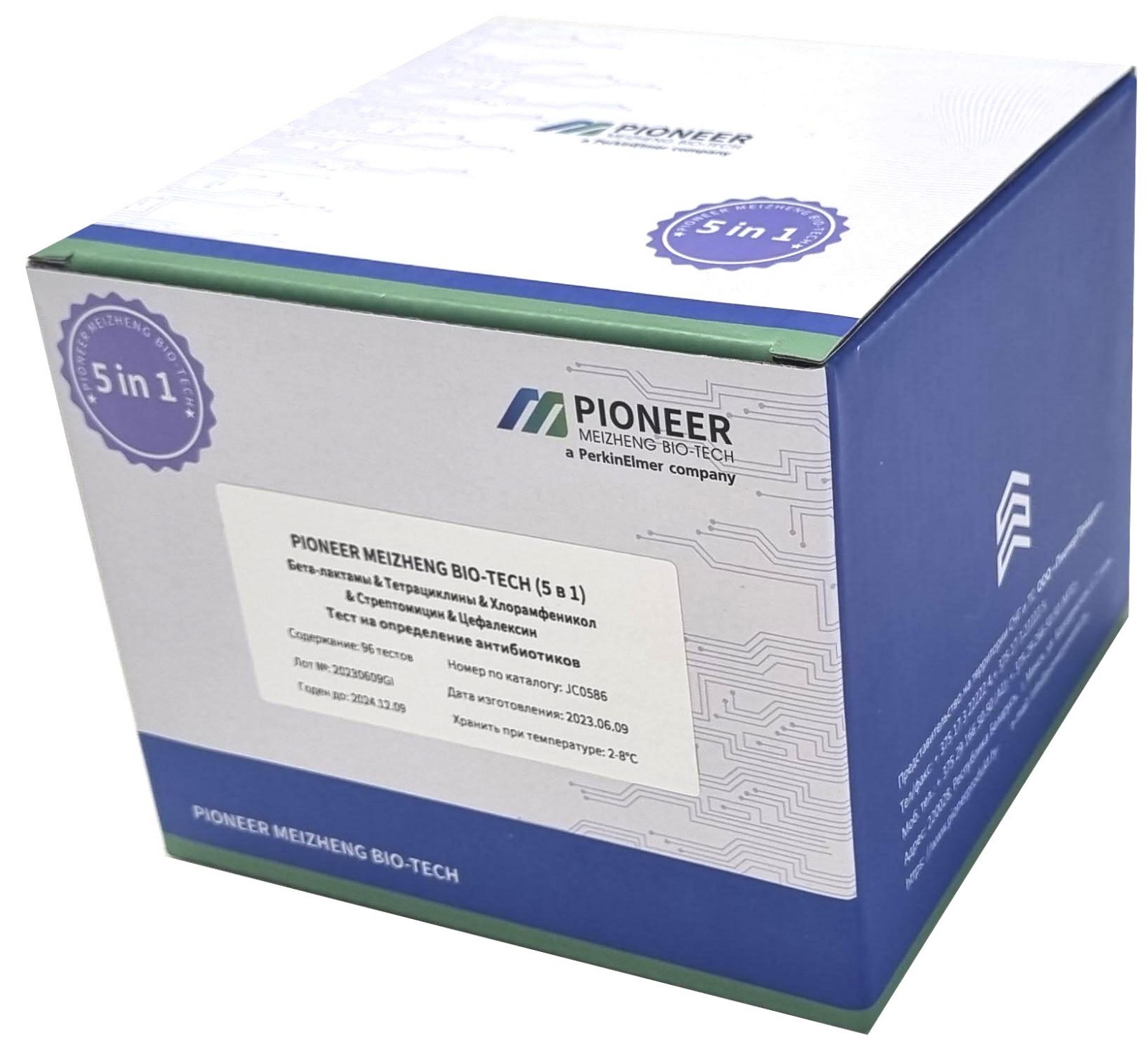 PIONEER MEIZHENG BIO-TECH (5 in1) JC0871/ Rapid tests for the determination of the residual amount of β-lactams, tetracyclines, chloramphenicol, streptomycins, ceftiofur in milk, whey.
PIONEER MEIZHENG BIO-TECH (5 in1) JC0871/ Rapid tests for the determination of the residual amount of β-lactams, tetracyclines, chloramphenicol, streptomycins, ceftiofur in milk, whey. Rapid tests for determining the residual amount of tetracyclines in meat
Rapid tests for determining the residual amount of tetracyclines in meat PIONEER MEIZHENG BIO-TECH (5 in1) JC1165 / Rapid tests for the determination of the residual amount of halofuginone, flavomycin, novobiocin, flunixin, dexamethasone / prednisolone in milk, whey
PIONEER MEIZHENG BIO-TECH (5 in1) JC1165 / Rapid tests for the determination of the residual amount of halofuginone, flavomycin, novobiocin, flunixin, dexamethasone / prednisolone in milk, whey Rapid tests PIONER 5 in 1 for the determination of sulfonamides, tylosin, tilmicosin, lincomycin, erythromycin, fluoroquinolones
Rapid tests PIONER 5 in 1 for the determination of sulfonamides, tylosin, tilmicosin, lincomycin, erythromycin, fluoroquinolones Rapid 4 in 1 tests for determining the residual amount of neomycin, kanamycin, gentamicin, spectinomycin in milk, whey
Rapid 4 in 1 tests for determining the residual amount of neomycin, kanamycin, gentamicin, spectinomycin in milk, whey TEST KIT for determination of inhibitory agents PIONEERPRODUKT® DASH-TEST, WC0040
TEST KIT for determination of inhibitory agents PIONEERPRODUKT® DASH-TEST, WC0040- Express tests for determining the residual amount of β-lactams, tetracyclines, chloramphenicol, streptomycins in milk, whey
- PIONEER MEIZHENG BIO-TECH (5 in1) JC0586 - Antibiotic tests 5 in 1 / Rapid tests for determining the residual amount of β-lactams, tetracyclines and cephalexin in milk, whey
- Express tests for determining the residual amount of β-lactams and tetracyclines in milk, whey
- Rapid tests for fluoroquinolone, erythromycin, lincomycin, tillosin and tilmycosin residues in milk, whey
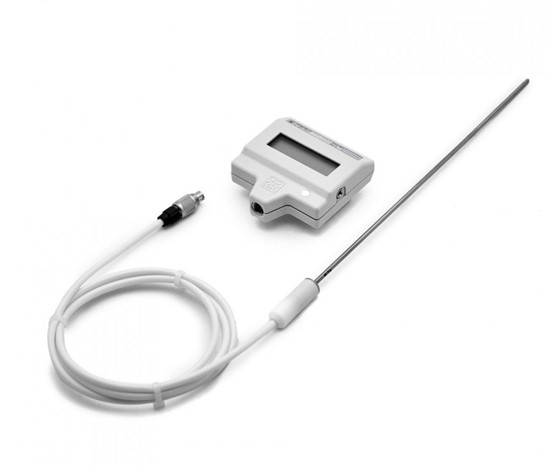 Electronic thermometer LT-300-H-TC
Electronic thermometer LT-300-H-TC Microbial Colony Counter SKM-2
Microbial Colony Counter SKM-2 Infrared thermometer with laser pointer Testo 830-T1, Testo 830-T2
Infrared thermometer with laser pointer Testo 830-T1, Testo 830-T2 Receipt printer MPRINT G58 for analyzer "Laktan 1-4M"
Receipt printer MPRINT G58 for analyzer "Laktan 1-4M" ROTAVISC IKA Viscometer (Germany)
ROTAVISC IKA Viscometer (Germany) Indicator strips pH 0-12, 100 pcs.
Indicator strips pH 0-12, 100 pcs.- MB25/MB27 moisture content analyzers (Ohaus)
- Isothermal containers for 10, 17 and 26 liters
- OHAUS Pioneer (PR) precision scales with 0.01 (2200g, 4200g)
- Laboratory thermostat-reductor LTR
- Piston oil sampler (d=20 mm, h cylinder=25 mm)
- Hanging cabinet with 3 drawers BA-CL- Х.Х ТНЯ-3
- HM Series Rotary Homogenizers
- Mug for pouring milk (Russia)
- Cylindrical shape weights with head
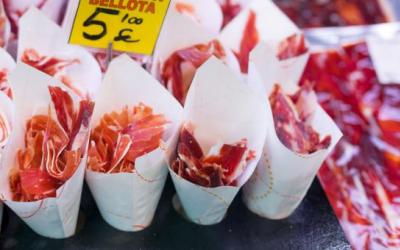 Laminating paper KH PACK®
Laminating paper KH PACK® KH PACK® bag making paper
KH PACK® bag making paper KH PACK® Straight Packing Paper
KH PACK® Straight Packing Paper GableTop aseptic packaging
GableTop aseptic packaging Paper sacks
Paper sacks Cartons for milk and dairy products
Cartons for milk and dairy products- Laminating paper KH PACK®
- Skiving and Hemming Technology
- Grease and barrier paper KH PACK®
- Korreks for confectionery
- Siliconized paper for hygiene products
- Paper for micro-ribbed
- The paper packing fastened anticorrosive UNIK 14-70 THAT 5453-003-05773103-2005
- Cover
- Carton
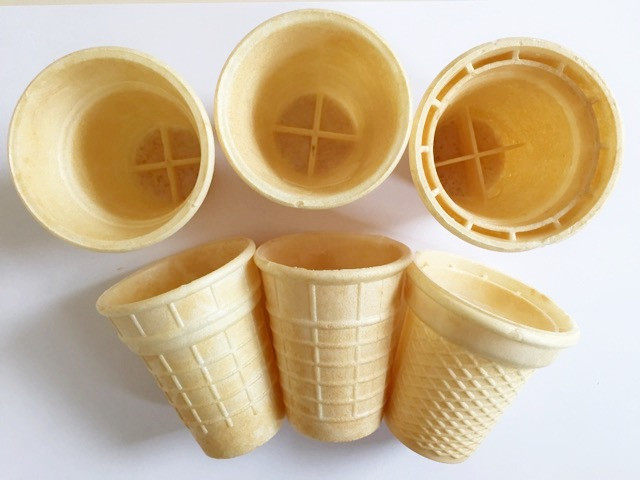 Wafer cup and cone
Wafer cup and cone Auxiliaries for sugar products
Auxiliaries for sugar products Ice cream sticks Standard 93
Ice cream sticks Standard 93 Ice cream sticks (with logo)
Ice cream sticks (with logo) General purpose environment of SPC "Biocompass-S" (Uglich)
General purpose environment of SPC "Biocompass-S" (Uglich) J-Bottom technology
J-Bottom technology- Petri dish 90 mm
- Pepsin whey pork
- Ice cream sticks Standard 114
- Ice cream sticks Magnum (curly)
- Ice cream sticks (round)
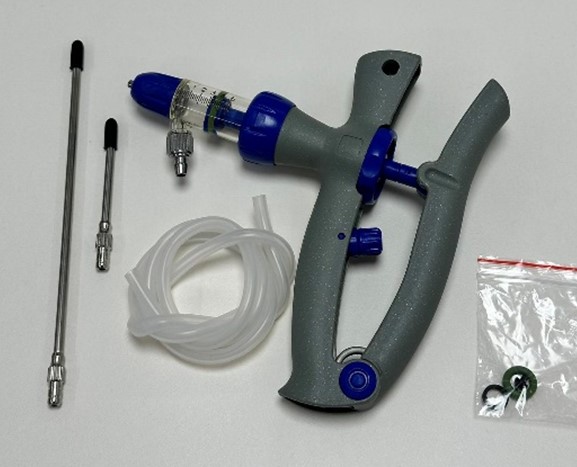 Dosing syringe, hose attachment
Dosing syringe, hose attachment Self-adhesive hoof bandage
Self-adhesive hoof bandage Disinfectant with washing effect (10kg)
Disinfectant with washing effect (10kg) Reusable plastic syringe
Reusable plastic syringe Liquid soap "Prestige" (yellow, green, red) 5 l
Liquid soap "Prestige" (yellow, green, red) 5 l Plastic syringe 150ml
Plastic syringe 150ml- Pencils for marking animals
- Veterinary glove to the shoulder and through the neck
- Forged pitchforks
- Apron and armlets
- Anti-catfish milking rings
- Mug for milking the first streams of milk.
- Milk filter for fine purification of milk for 2, 5, 10 tons
- Disposable nitrile gloves (packing 100 pieces)
- Stainless steel obstetric aid
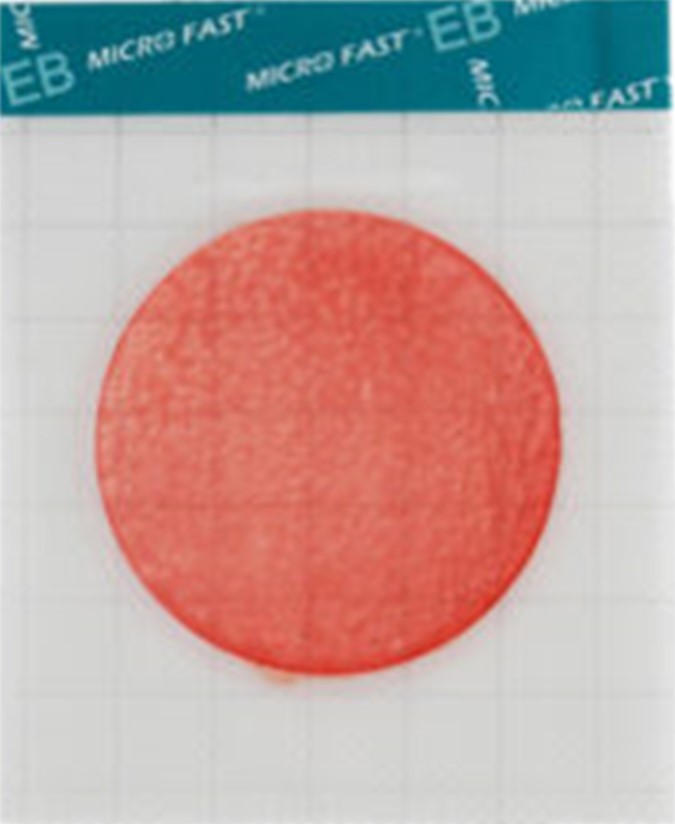 MicroFast® Enterobacteriaceae Count Plate (cat. no. LR1011)
MicroFast® Enterobacteriaceae Count Plate (cat. no. LR1011) MicroFast® Coliform & E.coli Count Plate
MicroFast® Coliform & E.coli Count Plate Substrate for accelerated determination of QMAFAnM, (catalog number LR1321)
Substrate for accelerated determination of QMAFAnM, (catalog number LR1321) Yeast & Mold Count Plate (cat. no. LR1003) MicroFast® Yeast & Mold Count Plate
Yeast & Mold Count Plate (cat. no. LR1003) MicroFast® Yeast & Mold Count Plate MicroFast® Bacillus cereus Count Plate (catalog number LR1010)
MicroFast® Bacillus cereus Count Plate (catalog number LR1010) Substrate for determining QMAFAnM (catalog number LR1001)
Substrate for determining QMAFAnM (catalog number LR1001)- MicroFast® Staphyloccocus aureus Confirmation Plate Staph.aureus Confirmation Plate (cat. no. LR1005Q)
- MicroFast® Microbiological Substrates
- MicroFast® Lactic Acid Bacteria Count Plate (Part Number LR1312)
- MicroFast® Salmonella Count Plate (SAL), for the determination of Salmonella in food and environmental samples (Catalog #LR1006)
- MicroFast® Environmental Listeria Count Plate
- Coliform Count Plate (catalog number LR1002) MicroFast® Coliform Count Plate
- Substrate for determining the number of staphylococci (Catalog number LR1005) MicroFast® Staphyloccocus aureus Count Plate
 Калининградская область заинтересована в обмене опытом с Беларусью в мелиорации и закупке техники01.10.2025
Калининградская область заинтересована в обмене опытом с Беларусью в мелиорации и закупке техники01.10.2025 Belarusian exports of dry milk products to Myanmar quadrupled in the first half of the year. 01.10.2025
Belarusian exports of dry milk products to Myanmar quadrupled in the first half of the year. 01.10.2025 В ОАО "Агро-Колядичи" умеют получать завидные урожаи30.09.2025
В ОАО "Агро-Колядичи" умеют получать завидные урожаи30.09.2025- "Россь" не рассчитывает на авось30.09.2025
- Куда инвестирует бизнес? Узнали, какой город в Беларуси выбрал для вложений производитель протеиновых батончиков30.09.2025
- БУТБ обеспечит платформу для взаимодействия белорусского и индонезийского бизнеса28.09.2025
- В ОАО "Святая Воля" в Ивацевичском районе за полгода выручка на каждого работника составила Br98 тыс.27.09.2025
- Газ на пятилетку, вторая АЭС, защита общего рынка и Украина. Подробности переговоров Лукашенко и Путина27.09.2025
- Record-breaking animals are being raised at the Ross breeding farm in the Volkovysk district.26.09.2025
- Шашлычок, мясные шарики, гуляш, борщ. Посмотрели, чем кормят детей в школе и сколько это стоит26.09.2025
- At OJSC "Svyataya Volya" in the Ivatsevichi district, revenue per employee over the past six months amounted to Br98 thousand.26.09.2025
- OAO Ostromechevo invested over $18 million in livestock development.26.09.2025
- Farmers at Rogoznyansky JSC in Zhabinka District increased their grain yields by more than a third.25.09.2025
- В ОАО "Агро-Колядичи" самой урожайной культурой оказался ячмень25.09.2025
- Алтайский край заинтересован в развитии биржевой торговли с Беларусью25.09.2025
- Белорусские сахарные заводы начали экспортировать свекловичный жом в ОАЭ через биржу24.09.2025
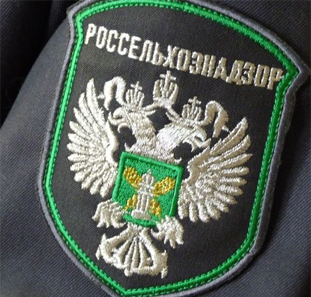 Суд подтвердил правомерность действий Россельхознадзора по отношению к мясоперерабатывающему предприятию из Архангельской области01.10.2025
Суд подтвердил правомерность действий Россельхознадзора по отношению к мясоперерабатывающему предприятию из Архангельской области01.10.2025 В Приморье владельцу коз вынесено предупреждение за игнорирование ветеринарных мероприятий01.10.2025
В Приморье владельцу коз вынесено предупреждение за игнорирование ветеринарных мероприятий01.10.2025 Мировой рынок органических и натуральных продуктов вырастет до $84 млрд к 2033 году01.10.2025
Мировой рынок органических и натуральных продуктов вырастет до $84 млрд к 2033 году01.10.2025- В Иркутской области Россельхознадзор провёл анализ более 140 проб пищевой продукции01.10.2025
- Тенденции и вызовы в агропромышленном комплексе России обсуждали на выставке «Агропродмаш-2025»01.10.2025
- Россельхознадзор открывает новые рынки для агропромышленной продукции01.10.2025
- Делегация Татарстана успешно посетила выставку CIFA в Китае01.10.2025
- Советы по борьбе с опасными заболеваниями животных: страны СНГ предпринимают совместные меры01.10.2025
- Проблемы "Токаревской птицефабрики": Новый иск на 64,8 млн рублей01.10.2025
- США могут стать вторым по величине рынком сбыта парагвайской говядины01.10.2025
- Ожидается рост производства свинины на Филиппинах01.10.2025
- Торговля агропродовольственными товарами ЕС остаётся стабильной, несмотря на рост цен01.10.2025
- Белгородская область провела всероссийскую конференцию по биобезопасности в АПК30.09.2025
- Рост производства мяса и молока в Ивановской области: инвестпроекты подстегивают отрасль30.09.2025
- Ямал демонстрирует умеренную инфляцию на фоне снижения цен на овощи и яйца30.09.2025
- Калининградские инспекторы предотвратили ввоз крупной партии птицеводческой продукции из Китая30.09.2025
 10 reasons to take a deposit04.05.2025
10 reasons to take a deposit04.05.2025 Губернатор назвал меры по борьбе с топливным кризисом в Хабаровском крае02.10.2025
Губернатор назвал меры по борьбе с топливным кризисом в Хабаровском крае02.10.2025 Bloomberg узнал о плане G7 значительно ужесточить санкции против России02.10.2025
Bloomberg узнал о плане G7 значительно ужесточить санкции против России02.10.2025- G7 заявила о проработке использования всей суммы российских активов02.10.2025
- Фон дер Ляйен заявила о смене подхода к санкциям против России02.10.2025
- США раскрыли долю поставляемого из России топлива для ядерных реакторов01.10.2025
- Евросоюз частично восстановит санкции против Ирана30.09.2025
- Yle узнал, что ЕС не планирует вносить российский никель в список санкций28.09.2025
- Иран сообщил о предложенной Штатами отсрочке санкций в обмен на уран28.09.2025
- Кремль отреагировал на планы ЕК изменить механизм продления санкций27.09.2025
- МИД ввел санкции против Британии и назвал ее меры «тришкиным кафтаном»27.09.2025
- Politico has learned that the European Commission has proposed changing the sanctions extension mechanism.26.09.2025
- В Венгрии подсчитали убытки из-за отказа от российского газа26.09.2025
- The FT reported on the German cellist's "too bold" ties to Russia.26.09.2025
- Bloomberg назвал условие Индии для отказа от российской нефти26.09.2025
- EUObserver узнал о нежелании ЕС закрываться от российских туристов25.09.2025
 В Британии предупредили о риске для миллионов из-за супербактерий06.01.2025
В Британии предупредили о риске для миллионов из-за супербактерий06.01.2025 Moscow court sides with Indian company in dispute with Health Ministry26.11.2024
Moscow court sides with Indian company in dispute with Health Ministry26.11.2024 Scientists estimate increase in mortality due to drug-resistant bacteria29.10.2024
Scientists estimate increase in mortality due to drug-resistant bacteria29.10.2024- Antibiotics for livestock and pesticides found in poisoned family's home29.10.2024
- Izvestia reported on the shortage of widely used antibiotics in Russia29.10.2024
- The Ministry of Health called data on the shortage of antibiotics unreliable29.10.2024
- Scientists warn of threat of return to pre-penicillin times29.10.2024
- The Ministry of Health explained how attitudes towards antibiotics changed during the pandemic07.05.2024
- WHO explains the risks of taking antibiotics "just in case"06.05.2024
- Doctors warn of bad practices after government decision on antibiotics25.04.2024
- The Ministry of Health removed antibiotics and hormones from the standard treatment of ARVI25.04.2024
- Antibiotics in oil: myth or reality?06.03.2024
- Antibiotics in sour cream: myth or reality?05.03.2024
- Antibiotics in goat milk: effects, problems and control measures16.02.2024
- The Japanese will stop producing the popular antibiotic vilprafen in Russia23.12.2023
- Antibiotics in Milk21.12.2023
 Antibiotics in pollock25.02.2024
Antibiotics in pollock25.02.2024 Antibiotics in herring: myth or reality?12.02.2024
Antibiotics in herring: myth or reality?12.02.2024 Antibiotics in perch10.02.2024
Antibiotics in perch10.02.2024- Antibiotics in sprat: facts and myths10.02.2024
- Antibiotics in tuna: an important health and environmental issue09.02.2024
- Antibiotics in meat30.01.2024
- Antibiotics in chebureks: myth or reality?29.01.2024
- Antibiotics in cutlets: problem or myth?18.01.2024
- Antibiotics in Chicken: Where Are the Highest Concentrations?17.01.2024
- Antibiotics in carp17.01.2024
- Where Are More Antibiotics in Chicken: Reality and Cautions16.01.2024
- Antibiotics in Salmon: Safety and Product Quality16.01.2024
- Antibiotics in Turkey15.01.2024
- Antibiotics in Sal: Reality and Safety Issues15.01.2024
- Antibiotics in Fried Dumplings: Facts, Risks and How to Stay Safe15.01.2024
- Antibiotics in sausages14.01.2024
 Antibiotics in Coffee: Myths and Reality03.05.2025
Antibiotics in Coffee: Myths and Reality03.05.2025 Forged forks: 10 interesting facts16.05.2024
Forged forks: 10 interesting facts16.05.2024 Swimming pool and weight loss: 10 interesting facts10.03.2024
Swimming pool and weight loss: 10 interesting facts10.03.2024- Tests for antibiotics in milk - 10 interesting facts07.03.2024
- Cleaning the kettle from scale, 10 interesting facts...06.03.2024
- Antibiotics in beer: 10 interesting facts04.03.2024
- Wild boar, how to survive...01.03.2024
- Purulent mastitis, 10 interesting facts27.02.2024
- Lemon and alcohol: 10 interesting facts25.02.2024
- Mint - 10 interesting facts25.02.2024
- Wild boar, 10 interesting facts20.02.2024
- Wild boar and domestic pig: comparison and advantages20.02.2024
- Cottage cheese, 10 interesting facts20.02.2024
- 10 Interesting Facts About Milk19.02.2024
- How to Clean a Toilet - 10 Interesting Facts (Acid vs Alkaline)18.02.2024
- Goat's milk: 10 interesting facts16.02.2024
 Dicroceliosis in cattle09.03.2024
Dicroceliosis in cattle09.03.2024 Demodicosis in cattle01.03.2024
Demodicosis in cattle01.03.2024 Purulent mastitis of cattle27.02.2024
Purulent mastitis of cattle27.02.2024- Hypodermatosis in cattle20.02.2024
- Hemonchoz in cattle11.02.2024
- Bursitis in cattle30.01.2024
- Brucellosis in cattle29.01.2024
- Bronchopneumonia in calves27.01.2024
- Bronchitis in cattle26.01.2024
- Mortellaro disease in cattle24.01.2024
- White muscle disease in cattle23.01.2024
- Babesiosis in cattle22.01.2024
- Cattle acidosis20.01.2024
- Arthritis in cattle20.01.2024
- Anaplasmosis in cattle18.01.2024
 Antibiotics for coughs: when they are needed and when they are not11.02.2024
Antibiotics for coughs: when they are needed and when they are not11.02.2024 Из-за пьяного бесправника погибли два человека. Следователи раскрыли подробности ДТП в Браславском районе02.10.2025
Из-за пьяного бесправника погибли два человека. Следователи раскрыли подробности ДТП в Браславском районе02.10.2025 В Бресте нетрезвая женщина попала под машину02.10.2025
В Бресте нетрезвая женщина попала под машину02.10.2025- "Картонная сверхдержава". С чем Польша готова шагнуть в 2026-й?02.10.2025
- A drunk mechanic hit a Gomel resident with his own car. The Investigative Committee has revealed details of the case.01.10.2025
- Хулиганство в интернете и реальной жизни. Верховный Суд обновил разъяснения для правоприменителей30.09.2025
- Compensation for moral damages, 4 years in prison. The perpetrator of a fatal accident near Gomel has been sentenced.30.09.2025
- She stabbed her partner in the back. The Investigative Committee has revealed details of the criminal case in Novopolotsk.27.09.2025
- За смену - десятки вызовов. Сотрудники ППС о спецзаданиях и необычных случаях 27.09.2025
- Как победить "осенний синдром"? Очень простые советы для хорошего самочувствия27.09.2025
- В Беларуси перенесены сроки введения прослеживаемости и маркировки товаров 26.09.2025
- Что является одной из основных причин травмирования на производстве, рассказали в ФПБ25.09.2025
- Минчанин лишился крупной суммы и золотого слитка после неудачного свидания 24.09.2025
- В центре внимания пешеходы и велосипедисты. ГАИ усилила контроль за соблюдением ПДД в Минском районе 24.09.2025
- Навигационные пломбы для отслеживания перевозок начнут применять на всей территории ЕАЭС24.09.2025
- В Минске пьяный водитель повредил девять припаркованных автомобилей24.09.2025
Persons
Our Partners
Top 10
Our Test - Pioneer Tests
- Express tests for determining the residual amount of β-lactams, tetracyclines, chloramphenicol, streptomycins in milk, whey
- TEST KIT for determination of inhibitory agents PIONEERPRODUKT® DASH-TEST, WC0040
- PIONEER MEIZHENG BIO-TECH (5 in1) JC0586 - Antibiotic tests 5 in 1 / Rapid tests for determining the residual amount of β-lactams, tetracyclines and cephalexin in milk, whey
- PIONEER MEIZHENG BIO-TECH (5 in1) JC0871/ Rapid tests for the determination of the residual amount of β-lactams, tetracyclines, chloramphenicol, streptomycins, ceftiofur in milk, whey.
- PIONEER MEIZHENG BIO-TECH (5 in1) JC1165 / Rapid tests for the determination of the residual amount of halofuginone, flavomycin, novobiocin, flunixin, dexamethasone / prednisolone in milk, whey

